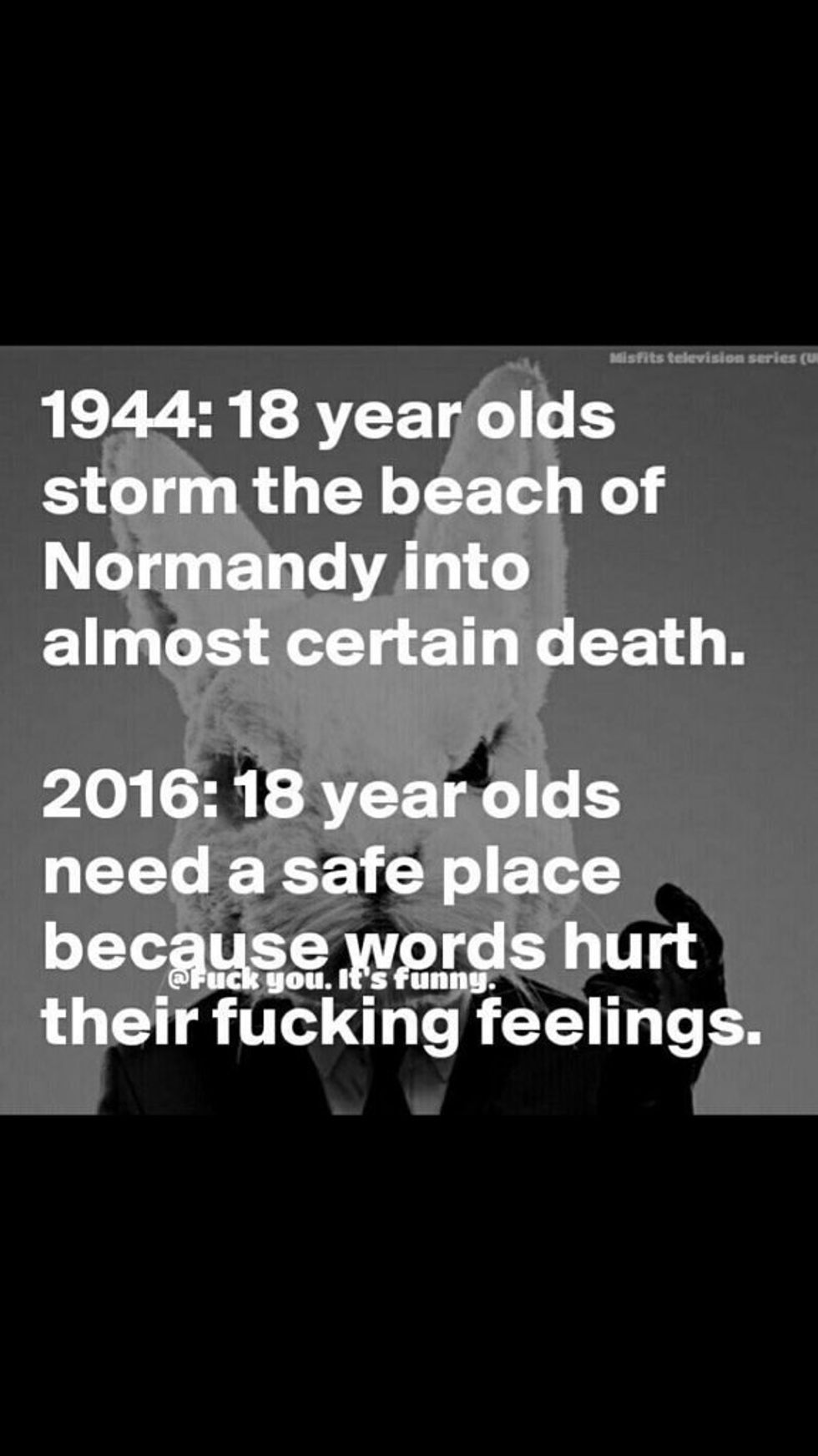One day I was scrolling through my facebook feed when this meme showed up, posted by someone in my “Northwestern University-Class of 2020” group:
This meme is just one of many on the internet that mock the use of trigger warnings and safe spaces. I’m not going to use this article to talk about how I think they should be used in academia or in any other respect because that’s a whole other article. Instead, I’m going to use the above meme and science to clarify how triggers happen to someone susceptible to them, because clearly, internet trolls (and others, I’m sure) have a damaging and problematic misconception of them.
First, let’s deal with the second part of the meme: “2016: 18-year-olds need a safe place because words hurt their f***ing feelings.”
I think it’s safe to say the meme is defining a trigger as “words hurt[ing] their feelings”.
Here’s how science defines it: any stimuli (smell, sound, sight, word, or phrase) that brings to the surface from the subconscious of the brain a sense of panic, anxiety, or fear associated with a traumatic event. In some cases, it can even cause a full-on flashback. This is where safe spaces come in: a safe space is a place a person who has been triggered can go to while they are experiencing the horrors of retraumatization.
The science behind how triggers form is shaky, but there is concrete evidence that triggers come from a response in the brain. More specifically, exposure to something that relates to past trauma triggers hyperactivity in the
This meme spreads the misconception that someone's feelings getting hurt and getting triggered are the same thing. Hopefully, the hard science I discussed above has convinced you that whether or not a person becomes triggered or has certain triggers is beyond their control, and is NOT something they want to happen. From personal experience, I have found that you can get triggered anytime, anywhere, and to any degree, from traumatic memories sucking you away from the present for a few moments to getting a full on panic attack. Your feelings get hurt when someone insults you, you get triggered by stimuli that results in you having to relieve your own personal nightmares.
This societal stigma that shames those who experience triggering when they literally have no control over it is disgusting, and can seriously affect those people. I was so ashamed of getting triggered and ashamed at the idea of seeking help for it that I went through my first quarter of college dealing with it alone until it started to affect my grades. For example, I would get triggered during class and dissociate so that I missed out on parts of the lecture. On one particularly horrible day when I had two midterms, I got badly triggered just a few hours before the first one and tried my best to make it go away, when in reality, I should have reached it for help so I could get the test rescheduled.
I ended reaching out for help, and now thanks to the great accommodations program my university has, I don’t have to worry about triggers and other side effects of PTSD getting in the way of my education. I hope that anyone with similar struggles reaches out for that help because it has been invaluable to me.
Now, time for the first part of the meme, which now that you’ve read the first part of this article, should become really ironic, because those teens that stormed the beaches of Normandy and survived most likely developed PTSD. And do you know what one of the most common qualities of PTSD is? Getting triggered, for example by loud noises that could be reminiscent of gunshots or bombs.
Moral of the story is please educate yourself before creating a meme that is insensitive, inaccurate, and ironic.




















